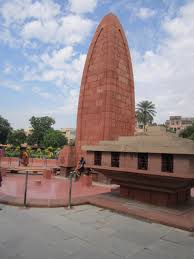Understanding Jallianwala Bagh and Its Significance

Introduction
Jallianwala Bagh is not just a historical park located in Amritsar, Punjab; it is a poignant symbol of the Indian struggle against British colonialism. The site, known for the tragic massacre on April 13, 1919, where British troops killed hundreds of unarmed Indian civilians, plays a crucial role in the narrative of India’s fight for freedom. Commemorating those who lost their lives, particularly in light of the recent 104th anniversary of the incident, the relevance of Jallianwala Bagh remains significant for contemporary society, reflecting the ongoing conversation about colonialism and its consequences.
Historical Context
The significance of Jallianwala Bagh stems from its harrowing history. On that fateful day, British Brigadier General Reginald Dyer ordered troops to open fire on a gathering of over 20,000 people who were protesting the Rowlatt Act, which repressed civil liberties. The attack resulted in the death of an estimated 379 individuals, with over a thousand wounded, according to official records. This event marked a turning point in the Indian freedom struggle, galvanizing nationalist sentiments across the country. It ignited a wave of indignation that eventually contributed to the growing momentum towards independence.
Current Relevance
Today, Jallianwala Bagh serves as a memorial that attracts thousands of visitors annually. Recently, in April 2023, various events were organized to mark the anniversary of the massacre. These activities included prayer meetings, cultural programs, and discussions emphasizing the importance of remembering the past. The site not only honors the memory of the martyrs but also serves as a reminder of the sacrifices made for India’s freedom.
Moreover, the discussions surrounding Jallianwala Bagh also tie into broader themes regarding colonial history, identity, and reconciliation. As society grapples with the implications of its colonial past, Jallianwala Bagh stands as a crucial educational tool for future generations, fostering awareness and understanding of the complexities involved in India’s journey to sovereignty.
Conclusion
In conclusion, Jallianwala Bagh is more than just a historical site; it is a powerful reminder of the sacrifices made in the name of freedom. Its significance continues to resonate in contemporary discussions surrounding colonialism, nationalism, and the importance of historical remembrance. As India progresses, revisiting the lessons of Jallianwala Bagh remains vital, ensuring that the memory of those who fought for justice and equality is preserved and honored, as it shapes the ethos of a nation dedicated to safeguarding its democracy.








